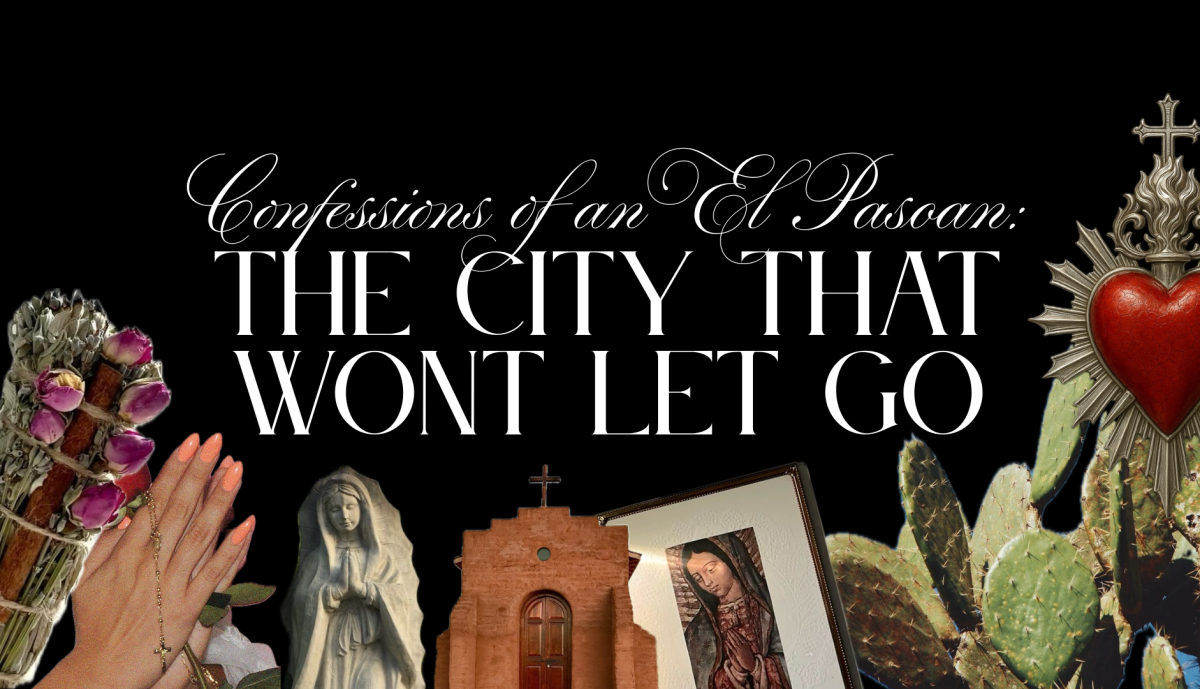Politics is defined as the study of government and the state, but America’s most recent election begs to differ. Voters dealt with the arguments of both candidates, which bobbled between newly elected president Donald J. Trump’s campaign coining his second term as “retribution,” or the democrats’ repetition of “protecting democracy.” While different in substance, the use of menacing language has established the foundation for an inquiry to construct a rhetorical wall between friends and families.
“I respect my husband, he’s a very brilliant man, but I do think he’s lacking in a lot of ways when it comes to common sense,” said Pennsylvanian Erica Nix. “When I realized that he was not supporting Donald Trump, I was just incredulous.”
Erica and Robert Nix are a couple from Pennsylvania that’s been married for over 30 years. The two have been firm republican voters for years, but in 2020, Robert Nix broke his status quo.
“I voted for him (Trump) as a republican thinking ‘How bad can it be?’ I was wrong. I couldn’t support him in 2020,” said Robert Nix. “Then after that, the insurrection, now I’m adamantly opposed, and I’m public about it. I’ve joined groups like ‘Republicans against Trump.’”
The other half of the Pennsylvania household is distinctly involved with the republican party, “I too believe that the election was stolen from him (Trump). As for January 6th, I believe that was orchestrated,” said Erica Nix.
In response to his wife’s beliefs, Robert Nix said, “I think she’s fallen victim to what the Make America Great Again (MAGA) movement has as well.”
The Nix’s relationship is a sample of how political opinions in interpersonal relationships have reverted into a grouping system, rather than a civic dialogue.

It’s easy to point to the 2016 election and say that’s when the problems started, but the reality is America started to shift its perception of presidents in 1992. A change not due to a democrat nor a republican, but an independent.
Henry Ross Perot was a Texas billionaire and the odd man out on the ballot 33 years ago. Perot’s billionaire status might’ve made him feel isolated from the common citizen, yet the businessman paved the perfect path through populism.
Perot announced his candidacy on Larry King Live, a medium that was largely different from a typical convention or rally. He was one of the first presidential candidates to utilize the mass media as a means to garner voter attention. So, whether it’s democrat Kamala Harris drinking a beer with Stephen Colbert on late night television, or Trump showing up on the Joe Rogan Show, Perot’s model is what has defined this previous election cycle.
The strategy of reaching the American people through an easily accessible source let more voters hear Perot’s distinctive rhetoric, which is one that Fay W. Bradford in a 1993 American Marketing Association research paper calls “the anti-establishment mood that buoyed Ross Perot’s presidential campaign.”
What Perot accomplished was diffusing the view of the government being an “establishment.” He ran on the belief of “taking the country back.”
Time Magazine described the billionaire’s campaign back in 1992 as “Win or lose, the challenge he is mounting to the establishment parties may well help break the deadlock of American democracy.”
Well, the deadlock shattered eight years ago, and the broken pieces may never get picked up.
“Donald Trump–you have to admit it–is fun to watch.” said Ezra Klein for Vox in 2016. “He’s red faced, he’s angry, he’s funny, he’s real in a way that only reality stars are real.”
The rise of Trump as a presidential candidate, no matter how controversial, is attested to how different his personality was compared to his competitors.

Trump’s “realness” was brought forth to Americans in a heated altercation regarding conflict in the middle east during the 2016 Republican Presidential Debate with former candidate Jeb Bush.
“Jeb is so wrong. You know what that is, that’s Jeb’s special interests (in) lobbyists talking,” said Trump. “These are animals, you have to knock them off strong.”
Trump’s efforts furthered when he promised to deliver on change and “drain the swamp,” building upon a populist mentality inherited by Perot.
As a result of losing the 2016 election, and with threats of possibly losing again in 2024, democrats had no option but to keep up with the change in rhetoric.
“The dire implications of this election cycle forced democrats to do something they generally abhor, name enemies.” wrote Austin Ahlman for The American Prospect in 2022.
Party lines are being drawn to the extremes, none more prominent than this past election year. As voters are being dragged to these divisions because of how the candidates are framing their positions.
“If we think about the type of messaging that resonates with people it’s more emotional language,” said Melissa Baker, Ph.D. an assistant professor of Political Science at UTEP, whose research focuses on the effects of politics on mental health. “Both candidates warn about the dangers of the other side, that gets voters engaged. When you start talking about risks and threats, that’s something that people feel that they need to pay attention to.”
More than ever, voters are concerned over their future, and in perceiving what can go wrong, it’s less likely that people are willing to hear each other out, which can tear down even the most interpersonal relationships.
“In the past 10 years or so, there’s a lot less room for seeing the other side,” Melissa Baker.
“Both sides are pretty sure they have the right ideas,” said Baker. “There is less opportunity for conversations.”
Baker cited a study upon which the Washington Post reports the findings of. Conducted in November of 2016, the study collected information from over 10 million smartphones to find out the divisions of households during Thanksgiving.
Researchers found that families in what Baker refers to as “purple states” typically cut Thanksgiving dinner by an average of 20 to 30 minutes.
“There’s a lot of disenchantment about politics from people who have been in those situations,” said Baker “If you’re someone who as a teenager you saw your family fall apart because of politics, you probably have a pretty jaded view of what politics does.”
The dialogue in politics has changed. Now, calling a candidate “lazy as hell,” or telling each other to “shut up,” during debates, is perceived as normal, but Americans like Robert Nix, don’t fear linking politicians’ strong language, to tragedy.
“He doesn’t care one way or the other,” said Nix when asked if he believes that Trump means his strong language. “It’s his rhetoric against minorities that made people shoot up Mexican-Americans in El Paso.”
Politics is drawing lines between friends and families, all whilst demolishing the desire to engage in political spaces for future generations.
For the future of America, it will be the citizens’ choice to either believe or call out the rhetoric that’s damaging a nation that should be united.









